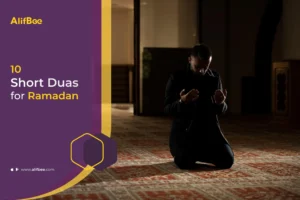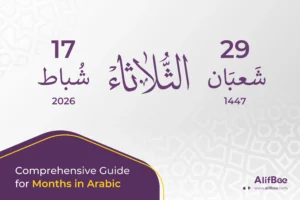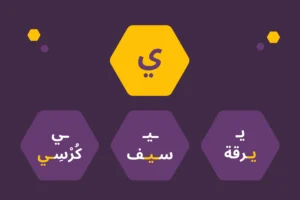Introduction
Hello dear friend, welcome to our new blog.
Do you know how to welcome people in Arabic?
Today, we have an interesting topic to discuss. Arabs are famous for their hospitality .They love welcoming guests and having them over. It is deeply rooted in their culture. So, how about we learn different phrases to welcome people in Arabic in different situations, like in meetings, travelling, hosting, and many other conditions?
How to Say Welcome in Arabic (MSA/Fusha)
In this blog, we will discuss how to say welcome in Fusha and different dialects. As in any language, the various expressions have literal and actual meanings, so let’s see them in examples to show how they are used clearly.
One of the most common phrases to say welcome in Arabic is ahlan wa sahlan. You can use this when you want to welcome someone who is visiting your house, workplace, or even your country, as shown in the following example:
English
Transliteration
Arabic
Welcome
Ahlan wa sahlan
أَهْلًا وَسَهْلًا
Welcome to our home.
Ahlan wa sahlan bika fī baytinā.
أَهْلًا وَسَهْلًا بِكَ فِي بَيْتِنَا
Did you know that ahlan w sahlan is not only used to greet people in Arabic, but we can also use it as a reply to someone thanking you for doing them a favor?
You will sound warm and friendly when you use it. You can also check the blog that discusses ways to say thank you in Arabic.
We can see this in the following example:
English
Transliteration
Arabic
A: Thank you for the help
A: Ashkuruka ʿalā al-musāʿadah
أَشْكُرُكَ عَلَى الْمُسَاعَدَةِ
B: You’re welcome
B: Ahlan wa sahlan
أَهْلًا وَسَهْلًا
English
Transliteration
Arabic
You honored us
Sharraftnā
شَرَّفْتَنَا
You honored us with your visit.
Sharraftnā bi-ziyāratak
شَرَّفْتَنَا بِزِيَارَتِكَ
You can use this phrase at the beginning or end of a visit that shows how honored you are by their visit.
English
Transliteration
Arabic
Hello
Marhaban
مَرْحَبًا
Welcome to our home.
Marḥaban bika fī baytinā
مَرْحَبًا بِكَ فِي بَيْتِنَا
As you have learned before in one of our blogs How to say Hello in Arabic, the word مَرحَبًا means Hello, but you can also use it to welcome guests when they visit you.
English
Transliteration
Arabic
You brought joy (to the place) - to a male
Nawwarta
نَوَّرْتَ
You brought joy (to the place) - to a female
Nawwarti
نَوَّرْتِ
English
Transliteration
Arabic
You brought joy to the place
You lit up the place! (literal meaning)
Nawwarta al-makān
نَوَّرْتَ الْمَكَان
This is a sweet Arabic greeting and, as you can see, it has literal and actual meanings. This shows how happy the hosts are with your presence
English
Transliteration
Arabic
Make yourself at home
al-bayt baytak.
الْبَيْتُ بَيْتُكَ
Come in, make yourself at home.
The house is your house. (literal meaning)
Tafaḍḍal, al-bayt baytak
تَفَضَّل، الْبَيْتُ بَيْتُكَ
This Arabic greeting phrase shows the hosts’ great generosity.
How to Say Welcome in Arabic in Dialects
Modern Standard Arabic (MSA) is widely understood across the Arab world, but it’s not usually spoken in everyday conversation; for that, people use their local dialects (like Egyptian Arabic, Levantine Arabic, Gulf Arabic, etc.)
MSA is used in writing, news, and formal speeches; it’s not how people naturally speak at home, in the market, or with friends. So, it’s essential to get familiar with common expressions in different dialects, especially greetings.
Take the greeting “Ahlan wa sahlan” (أهلاً وسهلاً) as an example. This is the standard way to say “Welcome” in MSA, often heard in formal contexts. However, in everyday speech, it changes depending on the region.
Here’s how “Welcome” is said across different Arabic dialects:
Welcome in Egyptian Arabic
English
Transliteration
Arabic
Welcome
(to a male)
Ahlan bīk
أَهْلًا بِيك
(to a female)
Ahlan bīki
أَهْلًا بِيكِي
You’ve lit up the place!
(to a male)
Nawwārtnā
نَوَّرْتنَا
(to a female)
Nawwārtinā
نَوَّرْتينَا
You’ve honored us
(to a male)
Sharraftnā
شَرَّفْتنَا
(to a female)
Sharraftinā
شَرَّفْتينَا
You’ve delighted and honored us
(Very warm & classic welcome)
(to a male)
Ānast wa sharrafta
آنَسْتَ وَشَرَّفْتَ
(to a female)
Ānasti wa sharrafti
آنَسْتِ وَشَرَّفْتِ
Welcome
Yā marḥabā
يَا مَرْحَبَا
Your visit is precious (Said to welcome someone, usually when they visit your home)
Khuṭwah ʿazīzah
خُطْوَة عَزِيزَة
Welcome in Levantine Arabic (Lebanon, Syria, Jordan, Palestine)
English
Transliteration
Arabic
Welcome
A classic, very common greeting used to welcome someone warmly
Ahla wa sahla
أَهْلا وَسَهْلا
Welcome
Used as a friendly and casual version of "Ahlan"
Ahlēn
أَهْلِين
You brought us blessings!
A poetic and warm way of saying "Your visit is a blessing."
Zāratnā al-barakah
زَارَتْنَا الْبَرَكَةُ
Hey, welcome
Friendly and often used in Gulf and Levantine dialects
Yā halā
يَا هَلَا
Welcome in Gulf Arabic
English
Transliteration
Arabic
You're very welcome and dear to us
Commonly used in Gulf dialects, especially in Saudi Arabia
Halā wa ghalā
هَلَا وَغَلَا
May God greet you
(to a male)
Ḥayyāk Allāh
حَيَّاكَ اللهُ
(to a female)
Ḥayyāki Allāh
حَيَّاكِ اللهُ
Welcome in Moroccan Arabic (Darija)
English
Transliteration
Arabic
You’ve lit up the house (i.e., your visit brought light and joy)
(to a male)
Halā wa ghalā
نَوَّرْت الدَّار
(to a female)
Nawwarti ad-dār
نَوَّرْتِ الدَّار
Welcome to you
(to a male)
Marḥaba bīk
مَرْحَبا بِيك
(to a female)
Marḥaba bīki
مَرْحَبا بِيكِي
Gender Variations in Arabic Greetings
One of the beautiful features of Arabic is how it changes slightly depending on who you’re speaking to, especially in terms of gender and number. These small grammar shifts show respect and connection in conversation.
Let’s take a look at one of the most common greetings:
أهلاً بكَ (Ahlan bika, Welcome, to a male)
Here’s how it changes depending on who you’re speaking to:
- To a male: أهلاً بكَ (Ahlan bika)
- To a female: أهلاً بكِ (Ahlan biki)
- To a group: أهلاً بِكُم (Ahlan bikum)
More Examples:
In Egyptian Arabic, you’ll often hear:
- أهلاً بيك (Ahlan bīk) – to a male
- أهلاً بيكي (Ahlan bīki) – to a female
- أهلاً بيكم (Ahlan bīkum) – to a group
Final word
As we’ve seen, Arabic greetings aren’t just words; they’re deep expressions of warmth, hospitality, and respect. Phrases like “نورتنا” (You lit up our place) or “زارتنا البركة” (You brought blessings) reflect a deep-rooted cultural value, making others feel truly welcome.
Try using these greetings with Arabic-speaking friends, at local shops, or on your next trip to an Arab country. You’ll be amazed at how much a simple phrase like “أهلاً وسهلاً” can brighten someone’s day.
Do you want to learn more Arabic phrases, everyday expressions or easy Arabic words for beginners?
You can check this interesting blog in which you will learn 50 easy words in Arabic or you can download AlifBee, your friendly Arabic learning app, to keep discovering the beauty of the Arabic language.









